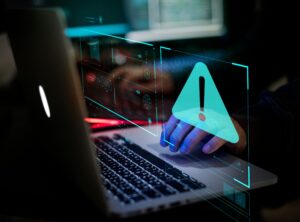A 14 year old high school girl did not make her school’s varsity
cheerleading team. Complaining to he friends and family is certainly not
new. However, going “off” on Snapchat caught the attention
of her school district. Her profanity-laced snapchats landed her in trouble
back at school despite the fact her single snapchat was visible for 24
hours, were all made off campus and not during school hours. Even though
she did not make the varsity team, she was still suspended for one year
from the junior varsity program. The basis was some kind of citizenship
violation.
Without being overly broad and stereotypical, she did what one would expect
cheerleaders to do – she sued. She argued that her snapchat was
protected speech. And, she won.
Inexplicably, the school district appealed. And lost. Amazingly, the school
district asked the United States Supreme Court to take the case. And,
it did accept the case. And, the school lost again. Sort of.
SCOTUS decided 8-1 (interestingly conservative justice Clarence Thomas
was the only dissenter) that schools may have a substantial interest in
regulating a variety of different kinds of off-campus conduct –
for example, severe bullying, threats aimed at teachers or students, participation
in online school activities or hacking into school computers. On the other
hand there are three features of off-campus speech that will make it less
likely that schools will have an interest in regulating it.
First, a student’s off-campus speech will generally be the responsibility
of that student’s parents.
Second, any regulation of off-campus speech would cover virtually everything
that a student says or does outside of school.
And third, the school has an interest in protecting unpopular speech and
ideas by its students.
SCOTUS left a lot of questions unanswered “for future cases to decide
where, when, and how these features mean the speaker’s off-campus
location will make the critical difference” in determining whether
speech can be regulated.
What is quite telling is that if the 14 year old former/now back on the
team cheerleader had been an adult, the speech would normally be protected
by the First Amendment. Moreover, she created the snap off school grounds
on a weekend, and there is no evidence that it caused the kind of substantial
disruption that would justify her suspension.
Also, this case does acknowledge that Snapchat is now speech worthy of
First Amendment’s protection.
Why did Justice Thomas dissent? He must have been a youth coach in his
early life because he thinks coaches should be able to discipline student-athletes
in their discretion. He opined that there are
“150 years of history supporting the coach”.
This 14 year old cheerleader just now graduated from high school. It is
not clear if she was ever admitted back onto the team.
In my opinion, this case was an easy one to predict.
Call or text 614-884-1100 or complete a Free Case Evaluation form


